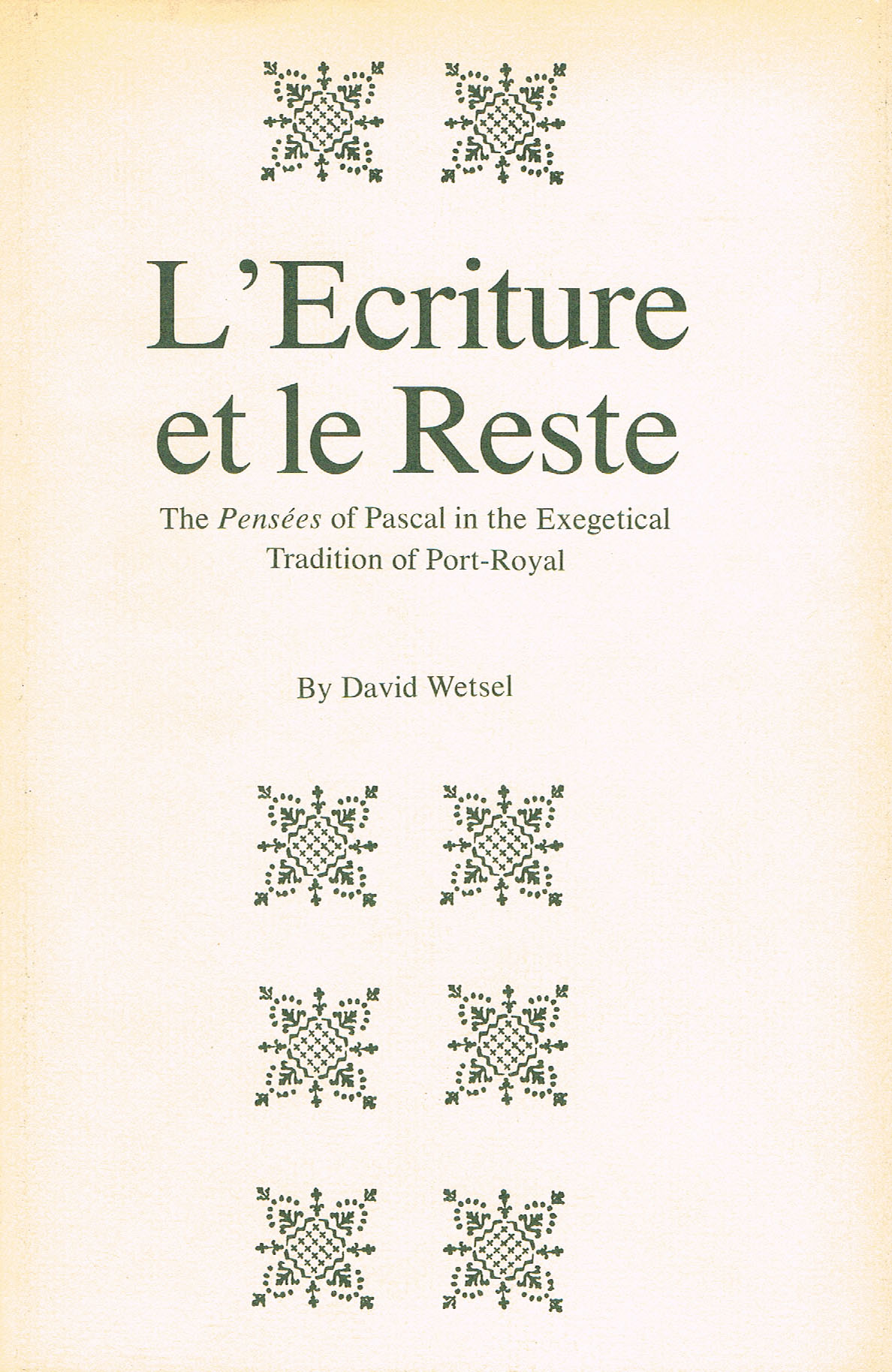L'Écriture et le ResteThe Pensées of Pascal in the Exegetical Tradition of Port-RoyalDavid Wetsel |
 1981 Literary Criticism / European / French 234 pp. 6x9  $24.95 paper 978-0-8142-5359-5 Add paper to shopping cart Shopping Cart Instructions Review/Change Shopping Cart & Check-out |
|||
|
|
Modern critical approaches to the Pensées have often been profoundly, though perhaps unconsciously, influenced by an interpretive principle inherited from the Enlightenment. According to this idea, these notes for Pascal’s projected Apology for Christianity may be conveniently divided into two categories: the “pensées philosophiques” and the “pensées religieuses.” This distinction, whose origins might be traced to Voltaire and Condorcet and which, in Professor Wetsel’s opinion, is based on an artificial dichotomy, has had a twofold effect on both modern critics and readers: it has obscured, on the one hand, the apologetic character of the proposed work adumbrated in the Pensées by inviting critics to elucidate its purely “philosophical” meaning, and has contributed, on the other, to critical neglect of those passages that are deemed of only “theological” interest. To point up the true significance and inherent interest of these neglected passages, Dr. Wetsel underatkes a systematic examination of the part played by the Bible in Pascal’s overall argument. He does so from the special perspective of biblical exegesis and scholarship as practiced by the theologians of Port-Royal, and finds of particular value in illuminating previously enigmatic passages of the Pensées that extensive set of commentaries appended to his translation of the Bible by Isaac Le Maistre de Sacy, Port-Royal’s chief authority on the interpretation of Scripture and Pascal’s own confessor. In Sacy’s Préface à la Genèse, indeed, Dr. Wetsel has discovered a previously undetected key to Pascal’s whole apologetic strategy. Though asserting that a proof of the historical credibility of the Bible stands at the very heart of Pascal’s intention, Dr. Wetsel finds analysis of Pascal’s system of scriptural interpretation much complicated by both textual and historical considerations that counfound a reader already confused by long lists of biblical citations whose function as documentation seems uncertain, and by exegetical principles that, though borrowed from the Church Fathers and the Old Testament itself, have been profoundly colored and reshaped in the neo-Augustinian tradition of Port-Royal. Professor Wetsel is able to overcome these difficulties through establishment of a series of parallel texts drawn from the thirty-four volumes of the commentary assembled by Sacy. He enables interpretation of ideas that appear in the Pensées only in abbreviated and recondite form, reveals the large dimensions of an apology based on the argument that God has built into the very fabric of sacred history a convincing proof of Christianity, and illuminates our heretofore imperfect understanding of the cryptic exchange between Pascal’s libertin and the apologist himself that comes at the end of the argument known as le pari: “N’y a-t-il point moyen de voir le dessous du jeu?” “Oui, l’Ecriture et le reste.” David Wetsel is an Andrew Mellon Fellow in the Department of French and Italian at the University of Pittsburgh. | |||

